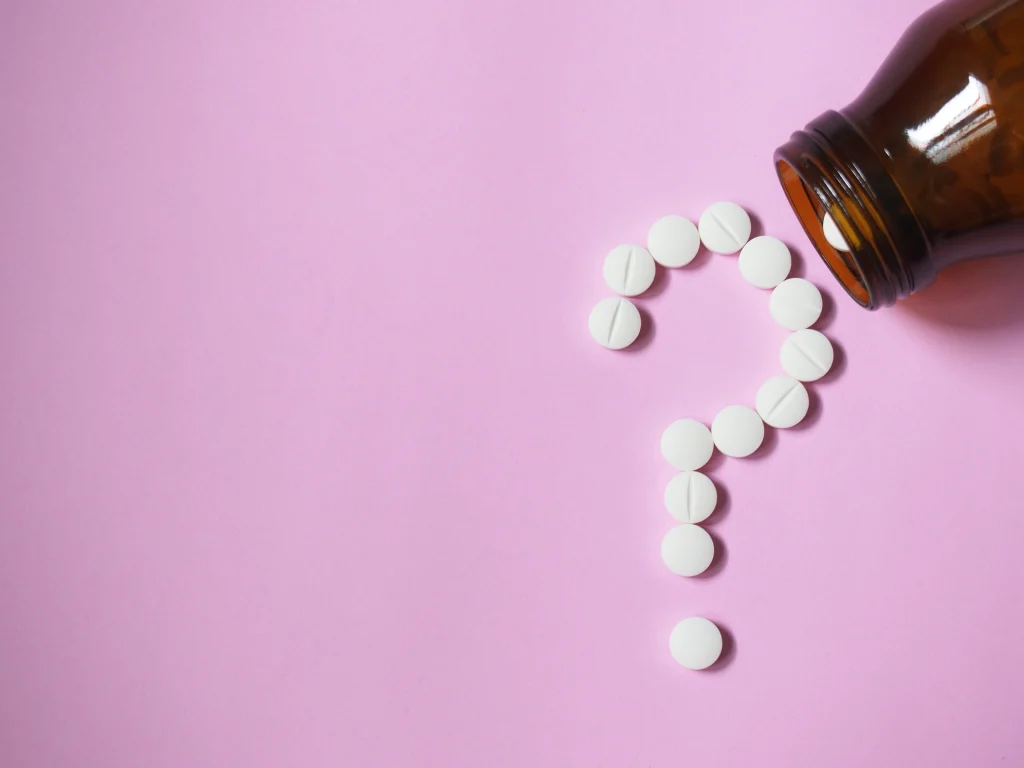Table of Contents
ToggleHere at Elevate Holistics, we understand the importance of medical marijuana for certain qualifying conditions. Unfortunately, the idea of mixing antipsychotics and weed can be slightly concerning, as you just don’t know what the interactions are going to be. The information surrounding cannabis-to-drug interactions in the US is severely lacking for many reasons, leaving so many patients in the dark about how their medications and medical marijuana interact.
Because of this, we want to educate our patients on how certain medications react with the cannabis plant. Today, we’re focusing on antipsychotics, CNS depressants, and the potential drug interactions you may come across. Let’s get started.
How Does Marijuana Interact With Medications?
Exploring how cannabis affects other medications, it’s particularly crucial to consider the implications of smoking weed while taking antidepressants and antipsychotics. The way cannabis works with these types of medicines isn’t always the same and needs careful thought.
Although cannabis might help some people, using it with antidepressants or antipsychotics might cause unexpected and possibly harmful effects. This is because both cannabis and these medicines can affect the brain’s chemical messengers, but in different ways, increasing the chance of negative outcomes or making the medicine less effective.
That’s why it’s crucial for anyone thinking about using medical marijuana, especially if they’re also using antidepressants and antipsychotics, to talk openly and fully with their doctor. A healthcare professional can give advice tailored to your health background, what medicines you’re currently taking, and the specific antidepressant or antipsychotic you use.
How CBD and THC Interact with Medications
Cannabinoids like CBD and THC have distinct interactions with medications, including antipsychotics and antidepressants, due to their unique effects on the body’s endocannabinoid system and various neurotransmitter pathways. So, what happens if you take CBD with antipsychotics?
CBD is known for its non-psychoactive properties and potential therapeutic benefits, including anxiety reduction and mood stabilization. However, CBD can also affect how the body metabolizes certain drugs, potentially leading to altered concentrations of medications in the bloodstream. It does this by inhibiting the activity of cytochrome P450, a group of liver enzymes responsible for drug metabolism.
As a result, taking CBD alongside antidepressants or antipsychotics could either increase the risk of medication side effects or diminish the medication’s effectiveness by interfering with its intended concentration and activity in the body.
On the other hand, THC is the psychoactive component of cannabis that can affect mood, perception, and cognition. While THC may provide some individuals with relief from symptoms like anxiety or depression, it can also potentially exacerbate these symptoms in others.
For those on antipsychotic or antidepressant medications, the addition of THC could complicate treatment by interacting with the medication’s effects on neurotransmitters such as serotonin and dopamine. This interaction can lead to unpredictable changes in mood, effectiveness of the medication, and potentially increase the risk of adverse side effects.
Can You Smoke Weed on Antipsychotics?
So, do antipsychotics change the effects of marijuana? This one is tricky. Doctors may prescribe those who have schizophrenia or bipolar disorders medications like Clozapine to help manage symptoms. However, when smoking weed while taking antidepressants and antipsychotics, it appears as though the plant may lessen the medication’s properties.
Studies have shown that medical marijuana may have the ability to speed up metabolic processes. With this, when you consume an antipsychotic, a sped-up metabolism may cause the medication to break down quicker. This breakdown may cause the drug’s effects to be less potent and less long-lasting than usual. For those with severe mental illness, this can be detrimental to daily functioning.
Of course, this may not be the case for every person who consumes medical marijuana alongside their antipsychotic medications. But, it is a reported drug interaction that’s more than worth inquiring to your doctor about. If you are on any antipsychotic or plan to be, always talk to your physician and see what they think. They may want to adjust your dosage or maybe even see if there is a better medication option out there for you and your medical marijuana use. Regardless, always discuss with your primary care physician before moving forward.
What Happens if You Smoke On Antipsychotics?
Along with certain antipsychotics, central nervous system (CNS) depressants also have demonstrated some side effects to medical marijuana when taken in unison— both positive and negative. CNS depressants include medications like Vicodin, OxyContin, Morphine, and Fentanyl.
For some, medical marijuana may enhance the depressant effect of medications. If you start to notice any dip in your moods, make sure to contact your doctor immediately and let them know. It’s worth writing down your emotions each day to keep track of them and see how the cannabis may be causing any fluctuations. This can be a great resource to show your primary care physician, as well.
Other studies, however, have demonstrated THC’s ability to increase the strength and efficacy of these medications while not increasing any risk of CNS overdose. With this kind of information, theoretically (and with doctor approval), you could lower the dose of your CNS depressant without noticing any lessened effectiveness of the drug. Doing this can significantly reduce the risk of overdose, keeping you safer and more balanced than before.
Again, we must stress that you communicate with your doctor prior to your medical use of cannabis. Your doctor can help you decide whether or not mixing CNS depressants and medical marijuana is suitable for you, and you can adjust any dosages you need via their approval.
Can Those With Schizophrenia Take Weed?
For those living with schizophrenia, considering the use of marijuana or hemp products comes with its own set of considerations. While some individuals may experience a sense of calm from these substances, the intricate dynamics of schizophrenia suggest that THC-containing products could worsen symptoms or interfere with antipsychotic treatment plans.
Because reactions to marijuana vary greatly among people with this condition, it’s essential to seek tailored advice from a healthcare provider. They can offer guidance that reflects your specific treatment and health needs. At Elevate Holistics, we advocate for well-informed choices and encourage consulting with medical experts to navigate cannabis use safely for those with mental health concerns.
Why Don’t We Know More?
If you haven’t noticed, a lot of this information is still in the beginning stages of scientific research. But, why is this? Why don’t we know more about cannabis and drug interactions? We can likely blame these side-effect roadblocks on the federal government’s view of the plant itself.
Currently, the marijuana plant is federally illegal on levels— it doesn’t matter whether it is used medicinally or not. The United States government classified the cannabis plant as a Schedule 1 Drug, making it challenging to conduct clinical trials and large-scale studies like we need. Of course, many organizations are working tirelessly to give MMJ patients the answers they need. Unfortunately, it’s taking time to progress the way the industry needs.
We can only hope that, in the near future, this will change. Hopefully, soon, the country will have a more extensive, better understanding of the medical interactions cannabis has with prescription drugs. But, until then, it’s best to start low and slow with your doses. Oh, and don’t forget to consult with your doctor before making any choices.
Staying Safe and Healthy With Elevate Holistics
Elevate Holistics wants to ensure you stay safe and healthy with your cannabis consumption. That’s precisely why we’re working alongside 3rd Street Dispensary to provide you all the information you need about consuming antipsychotics and weed at the same time.
Ready to get a medical marijuana card for yourself? Start by booking a telehealth appointment through Elevate and talking one-on-one with our medical cannabis experts. Then, head on over to 3rd Street’s website. Here, you can check out all the products and other resources they have to offer patients like you. Together, Elevate and 3rd Street are doing everything we can to ensure your medical marijuana journey is stress-free, thought-out, and safe.










